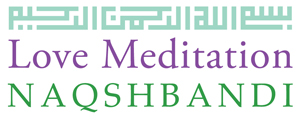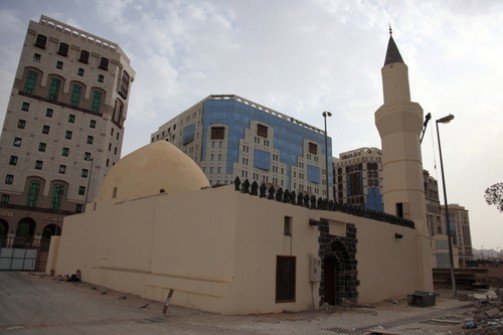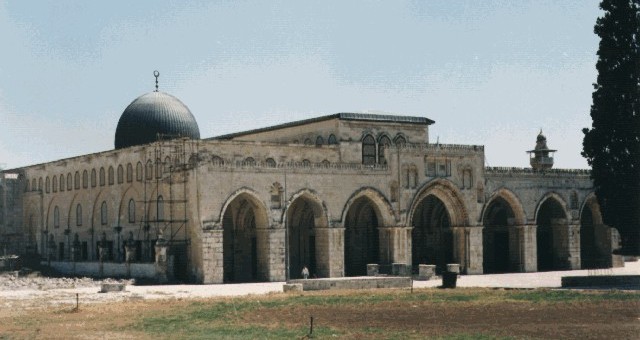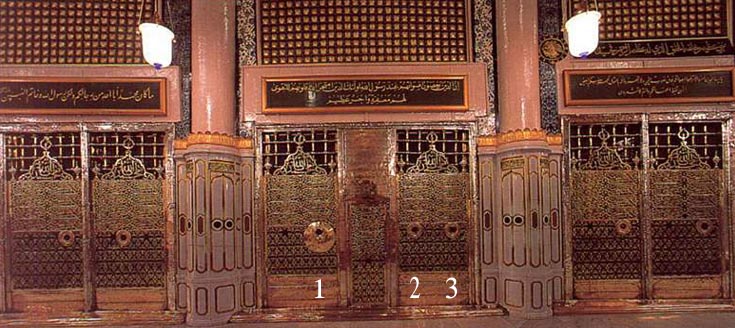URS Omar bin Khattab RA – The Second Khaliph of Islam
Omar bin Khattab (RA) – The Second Khaliph of Islam
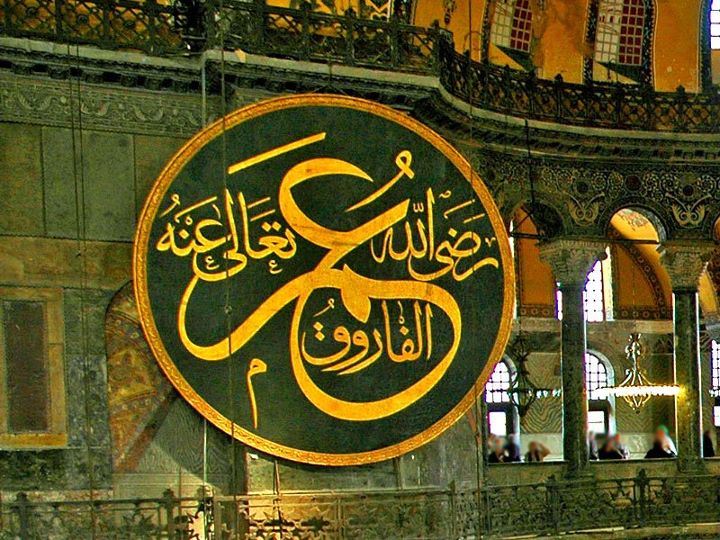
Acceptance of Islam
Omar (RA) was twenty seven when the Holy Prophet (PBUH) began his mission. Young Omar (RA) did not care to listen to the message of Islam. As years went by, Islam made slow headway. This made Omar (RA) angry. When one of Omar’s (RA) own maid-servants became a Muslim, he beat her severely. Still, she would not give up the new faith.
In the sixth year of the Mission, a number of Muslims left for Abyssinia. This made Omar (RA) boil with rage. “Here is a man,” he thought to himself “who has split the people. People lived smoothly enough. He appeared on the scene and has torn son from father and brother from brother. Now his followers have run away to another land. Surely Muhammad is the cause of all trouble. I must slay him and put an end to the trouble.”
With this resolve, Omar (RA) drew his sword and set out to kill the Holy Prophet (PBUH). On the way he met Sa’ad bin Abi Waqqs RA who asked him why he looked so upset. Omar (RA) said to him, “I am after finishing Muhammad (SWS).” “You had better first set your own house in order. Your sister and brother-in-law both have accepted Islam,” said Sa’ad.
Hearing this, Omar (RA) flew into a towering rage and turned his steps towards his sister’s house. The door of the house was bolted from inside and both husband and wife were receiving lessons in the Quran from Hadhrat Khabbab (RA). Omar (RA) knocked at the door and shouted for his sister to open it. Hadhrat Khabbab (RA) hearing the voice of Omar, hid himself in some inner room, forgetting to take the manuscript pages of the Holy Quran with him. When the sister opened the door, Omar hit her on the head, saying: “O, enemy of yourself. You too have renounced your religion.”
Her head began to bleed. He then went inside and inquired. “What were you doing? Have you also forsaken the creed of your forefathers and gone over the new religion?” The brother-in-law replied, “But what if the new religion be the better and the true one?” Omar got beside himself with rage and fell on him, pulling his beard, and beating him most savagely. When the sister intervened, he smote her so violently on her face that it bled most profusely. She was, after all, Omar’s sister; she burst out: “Omar, we are beaten only because we have become Muslims. Listen! We are determined to die as Muslims. You are free to do whatever you like.”
When Omar had cooled down and felt a bit ashamed over his sister’s bleeding, his eyes fell on the pages of the Quran left behind by Hadhrat Khabbab (RA). He said, “Alright show me, what are these?” No, said the sister, “You are unclean, and no unclean person can touch the Scripture.” He insisted, but the sister was not prepared to allow him to touch the leaves unless he washed his body. Omar at last gave in. He washed his body and then began to read the leaves. It was Surat Taha”.
“Verily, I am Allah: there is no god but I: so serve me (only), and establish regular prayer for My remembrance.” (Quran 20:14)
The fear of Allah gripped his heart. He wept and declared, “Surely this is the word of Allah. I bear witness that Muhammad is the Messenger of Allah.”
On hearing this, Hadhrat Khabbab (RA) came out from inside and said: ” O, Omar! Glad tidings for you. Yesterday the Prophet (SAW) prayed to Allah, ” O, Allah strengthen Islam with either Omar or Abu Jahl, whomsoever Thou Likest.” It seems that his prayer has been answered in your favor.”
Omar then went to the Prophet (SAW). He was not going to slay him but to embrace his faith. The Holy Prophet (PBUH) was sitting in the company of some men. He saw Omar (RA) coming and asked, “Omar (RA), what brings you here?” “O Prophet (PBUH) of Allah!” replied Omar (RA), “I have come to embrace Islam.” Great was the joy of the Holy Prophet (PBUH) and his followers. Loud shouts of “Allah is Great” rent the air of Mecca. Soon everyone knew that Omar (RA) was no longer an enemy of Islam. It was a great day for Islam because one of its bitterest enemies had become its staunch follower.
The coming over of Omar (RA) made a difference for Islam. Up until this time, the Muslims had lived in constant fear of the non-believers. Some of them had not even made their faith known to the people. They could not say their prayers publicly. All this changed when Omar (RA) became a Muslim.
The first thing Omar (RA) did was to call together the chiefs of Mecca. Before this gathering he declared himself a follower of Islam. They started at him in silence. No one had the courage to utter a word of reproach.
Omar (RA) next requested for the Holy Prophet (PBUH) to say prayers in the Kaaba. He himself led a party of Muslims to that place. A second party was led by Hamza. When all had gathered, they said their prayers in congregation. The Holy Prophet (PBUH) led the prayer. This was the first prayer of its kind said in the Kaaba.
When migration to Medina started, the same thing happened again. Most of the Muslims left Mecca silently and secretly. But Omar (RA) would not do so. He put on his arms. Then he went to the Kaaba and said his prayer. The chiefs of Mecca looked at him in silence. After the prayer, he shouted out to them, “I am leaving for Medina. If anyone wants to stop me, let him meet me across the valley. His mother shall certainly have to weep for him in sorrow.” Despite this challenge, no Meccan would dare stop Omar (RA). These things earned Omar (RA) the title of Farooq. Farooq is the one who makes a difference. Omar (RA)’s acceptance of Islam had made a big difference for Islam and Muslims.
Devotion to the Prophet (SWS Peace and Blessings be Upon Him and His Family)
Omar (RA) stood by the side of the Prophet (PBUH) in all battles and expeditions. Great was his love for Allah and His Apostle. He never allowed any blood ties or friendship to stand in the way of this love.
The death of the Prophet (PBUH) was a stunning shock to Omar (RA). He could not believe it, so much so that he drew his sword and said that he would cut off the head of the man who said the Messenger of Allah was dead. He was overwhelmed with grief. Life without the Prophet (PBUH) was unthinkable, he thought. And if the Prophet (PBUH) was really no more, as people said, what was going to happen to Islam and the Muslims? These dark thoughts blotted out all reason from Omar’s (RA) head. Not until Abu Bakr (RA) had reminded him of the clear verdict in the Quran did he come to himself by reciting the following verse from the Quran:
“Muhammad is no more than a Messenger: many were the Messengers that passed away before him. If he died or were slain, will you then turn back on his heels?” If any did turn back on his heels, not the least harm will he do to Allah.” (Quran 3:144)
Abu Bakr (RA), during his calpihate, depended on Omar (RA) for advice. That was because the Holy Prophet (PBUH), in his life-time, gave great weight to what Omar (RA) said.
Omar (RA) in Jerusalem
The Caliph left Ali (RA) in Medina as his deputy and himself left for Jerusalem to sign the treaty of peace. He had only one attendant with him and only one camel to ride. Omar (RA) and the attendant rode the camel by turns. It happened to be the servant’s turn to ride on the day when they were to reach Jerusalem. “Commander of the Faithful,” said the attendant, “I give up my turn. It will look awkward, in the eyes of the people, if I ride and you lead the camel.”
“Oh no,” replied Omar (RA), “I am not going to be unjust. The honor of Islam is enough for us all.”
The treaty of peace said: From the servant of Allah and the Commander of the Faithful, Omar (RA): The inhabitants of Jerusalem are granted security of life and property. Their churches and crosses shall be secure. This treaty applies to all people of the city. Their places of worship shall remain intact. These shall neither be taken over nor pulled down. People shall be quite free to follow their religion. They shall not be put to any trouble.
The gates of the city were now opened. Omar (RA) went straight to the Temple of David (Masjid-Al-Aqsa). Here he said his prayer under Prophet David’s (AS) Arch.
Next he visited the biggest Christian church of the city. He was in the church when the time for the afternoon prayer came.
“You may say your prayers in the church,” said the Bishop. “No,” replied Omar (RA), “if I do so, the Muslims may one day make this an excuse for taking over the church from you.”
So he said his prayers on the steps of the church. Even then, he gave the Bishop a writing. It said that the steps were never to be used for congregational prayers nor was the Adhan [call to prayer] to be said there.
Caliph Omar (RA)’s Address To His Fellow Muslims
“O ye people I counsel you to read the Quran. Try to understand it and ponder over it. Imbibe the teachings of the Quran. Then practice what the Quran teaches. The Quran is not theoretical; it is a practical code of life. The Quran does not bring you the message of the Hereafter only; it is primarily intended to guide you in this life.
Mould your life in accordance with the teachings of Islam for that is the way of your well being. By following any other way you will be inviting destruction.
“Fear Allah (The One True God), and whatever you want seek from Him. All men are equal. Do not flatter those in authority. Do not seek favours from others. By such acts you demean yourself. And remember that you will get only that is ordained for you, and no one can give you anything against the will of God. Then why seek things from others over which they have no control? Only supplicate God for He alone is the sovereign.
“And speak the truth. Do not hesitate to say what you consider to be the truth. Say what you feel. Let your conscience be your guide. Let your intentions be good, for verily God is aware of your intentions. In your deeds your intentions count. Fear God, and fear no one else. Why fear others when you know that whatever sustenance ordained for you by God you will get under all circumstances? And again why fear when you know that death is ordained by God alone and will come only when He wills?
“Allah has for the time being made me your ruler. But I am one of you. No special privileges belong to a ruler. I have some responsibilities to discharge, and in this I seek your cooperation. Government is a sacred trust, and it is my endeavour not to betray the trust in any way. For the fulfilment of the trust I have to be a watch-man. I have to be strict. I have to enforce discipline. I have to run the administration not on the basis of personal idiosyncrasies; I have to run it in public interest and for promoting the public good. For this we have the guidance in the Book of God. Whatever orders I issue in the course of day to day administration have to conform to the Quran.
“God has favoured us with Islam. He sent to us His Messenger (Muhammad (PBUH), pbuh). He has chosen us for a mission. Let us fulfill that mission. That mission is the promotion of Islam. In Islam lies our safety; if we err we are doomed.”
Omar (RA)’s Mosque
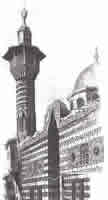 Omar (RA) wanted to build a mosque in Jerusalem. He asked the Bishop which place would be suitable for the purpose. The Bishop suggested the “Sakhra,” or the rock on which Allah had talked to Prophet (PBUH) Jacob. Here the Christians had heaped garbage to tease the Jews.
Omar (RA) wanted to build a mosque in Jerusalem. He asked the Bishop which place would be suitable for the purpose. The Bishop suggested the “Sakhra,” or the rock on which Allah had talked to Prophet (PBUH) Jacob. Here the Christians had heaped garbage to tease the Jews.
Immediately the Sakhra was cleared of the garbage. Omar (RA) himself worked like a labourer with the rest of his men. Jerusalem, the city of Prophet David (AS) and of Prophet Christ (AS), witnessed the equality of Islam. When the Sakhra had been cleared of every trace of dirt, a mosque was built on the site. The mosque stands to this day and is known as Omar (RA)’s Mosque.
The Years of Omar (RA)’s Caliphate
Omar (RA) was Caliph for ten and a half years. This period stands out as the golden age of Islam. Islam became a world power. It could now stand the wear and tear of time. The thing for which the Holy Prophet (PBUH) had prayed years before was now a fact. Omar (RA) had made Islam strong and great!
Omar (RA)’s amazing success was due to two things – his fear of Allah and his love for the Prophet (PBUH). In all his dealings he never forgot for a second that he was answerable to Allah. He strictly followed the example set by the Prophet (PBUH). These two things made him at once the most powerful ruler and the most selfless man of his time. He used all his power for the greater glory of Allah and His Prophet (PBUH).
Omar (RA) personally looked into the smallest affairs of the people. He worked like a labourer all day. At night, he went around the city to find out for himself how people lived and felt. He was ever ready to help those who needed his help. He would carry supplies on his shoulders and deliver them at the homes of the poor. Nothing could stop Omar (RA) from doing his duty to the people.
All citizens, including the Caliph himself, were equal before the law. Once Omar (RA) appeared before the court of Medina, somebody had made a complaint against him. The judge stood up to show respect to the Caliph as he entered the court. “This is the first injustice you have done to the plaintiff,” said Omar (RA), addressing the judge. Modern democratic states have yet to reach this level of democracy. Their heads cannot be summoned before an ordinary court.
The greatest desire of Omar (RA) was to see the blessings of Islam flow in full measure to all people, in all countries under him. He himself could be approached by anybody. Even the humblest of men could stop him in the street. He could ask the Caliph why he had done a particular thing. A poor woman could speak back to him. She could point out to him any of his mistakes. With all his power and piety, he never considered himself above mistakes. He welcomed the opinions of those who differed with him. In fact he used to say, “Allah’s mercy be on those who bring me the knowledge of my shortcomings.”
Omar’s Death
One morning Omar (RA) went to the mosque as usual to lead the prayer. Abu Lolo was already hiding in the corner, with a dagger in hand. As soon as Omar (RA) began the prayer, the assassin jumped on him. He gave six cuts with the dagger on the Caliph’s body. The horrified worshippers overpowered the assassin. Thereupon the wretch slew himself with the same dagger.
Omar (RA) kept lying in a pool of blood until the prayer was over. Then he was carried home. “Who is my assassin?” he asked. “Abu Lolo,” said the people. “Allah be thanked!” said Omar (RA). “It is not a Muslim who has shed my blood.”
A physician was called in to dress and treat the wounds of the Caliph. He said they were too deep to be healed. At this many people who stood around began to weep.
“Please do not weep,” implored Omar (RA). “Have you not heard the Messenger of Allah say that the weeping of relatives adds to the torture of the dead person?” Finding his end in sight, Omar (RA) called his son, Abdullah. “My son,” he said, “go to Aisha. Give her Omar (RA)’s greetings. Do not refer to me as the Commander of the Faithful; for I am no longer one. Place before her my wish to be buried by the side of the Prophet (PBUH) and my illustrious predecessor.”
Abdullah found Aisha weeping. He delivered his father’s message to her. “I wanted to reserve this spot for my own grave, but I prefer Omar (RA) to myself,” said Aisha.
Abdullah conveyed Aisha’s consent to his dying father.
“Allah be thanked!” said Omar (RA). “This was the greatest wish of my life. But look, son, when you take my dead body to be buried, again give her my greetings, and ask her permission. If she allows, bury me there, otherwise bury me in the graveyard of Medina.”
As the end drew in sight, Omar (RA) began to weep, because of the fear of Allah. “My son,” he called out to Abdullah, “help me put my forehead on the ground.”
“O Allah,” murmured the dying Caliph, “cover me with Your forgiveness. If that does not happen, woe to me and woe to the mother who bore me.”
The next moment Omar (RA) was in Allah’s Mercy and Forgiveness.
Bir hurmati Habib bir hurmati Anazalta Alayhi Surat al-Fatiha.
